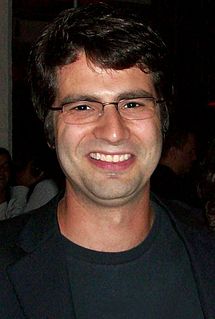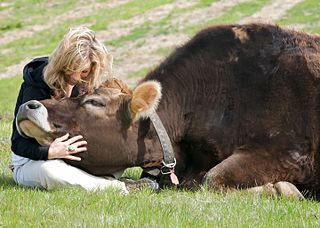A Quote by Aristotle
Plants, again, inasmuch as they are without locomotion, present no great variety in their heterogeneous pacts. For, when the functions are but few, few also are the organs required to effect them. ... Animals, however, that not only live but perceive, present a great multiformity of pacts, and this diversity is greater in some animals than in others, being most varied in those to whose share has fallen not mere life but life of high degree. Now such an animal is man.
Related Quotes
All living organisms are but leaves on the same tree of life. The various functions of plants and animals and their specialized organs are manifestations of the same living matter. This adapts itself to different jobs and circumstances, but operates on the same basic principles. Muscle contraction is only one of these adaptations. In principle it would not matter whether we studied nerve, kidney or muscle to understand the basic principles of life. In practice, however, it matters a great deal.
The intelligence displayed by many dumb animals approaches so closely to human intelligence that it is a mystery. The animals see and hear and love and fear and suffer. They use their organs far more faithfully than many human beings use theirs. They manifest sympathy and tenderness toward their companions in suffering. Many animals show an affection for those who have charge of them, far superior to the affection shown by some of the human race. They form attachments for man which are not broken without great suffering to them.
Memory is therefore, neither Perception nor Conception, but a state or affection of one of these, conditioned by lapse of time. As already observed, there is no such thing as memory of the present while present, for the present is object only of perception, and the future, of expectation, but the object of memory is the past. All memory, therefore, implies a time elapsed; consequently only those animals which perceive time remember, and the organ whereby they perceive time is also that whereby they remember.
The most evident difference between man and animals is this: the beast, in as much as it is largely motivated by the senses and with little perception of the past or future, lives only for the present. But man, because he is endowed with reason by which he is able to perceive relationships, sees the causes of things, understands the reciprocal nature of cause and effect, makes analogies, easily surveys the whole course of his life, and makes the necessary preparations for its conduct.
[The taxidermist is] a historian, dealing with an animal's past; the zookeeper is a politician, dealing with an animal's present; and everyone else is a citizen who must decide on that animal's future (...) The indifference of the many, combined with the active hatred of the few, has sealed the fate of animals.
The phytochemicals, antioxidants, and fiber- all of the healthful components of plant foods- originate in plants, not animals. If they are present, it is because the animal ate plants. And why should we go through an animal to get the benefits of the plants themselves? To consume unnecessary, unseemly, and unhealthy substances, such as saturated fat, animal protein, lactose, and dietary cholesterol, is to negate the benefits of the fiber, phytonutrients, vitamins, minerals, and antioxidants that are prevalent and inherent in plants.
Culture is being threatened when all worldly objects and things, produced by the present or the past, are treated as mere functions for the life process of society, as though they are there only to fulfill some need, and for this functionalization it is almost irrelevant whether the needs in question are of a high or a low order.
We are all born as animals and live the life that animals live: we sleep, eat, reproduce, and fight. There is, however, another order of living, which the animals do not know, that of awe before the mystery of being ... that can be the root and branch of the spiritual sense of one’s days. That is the birth - the Virgin Birth - in the heart of a properly human, spiritual life.
On love, not harming others, and respecting all beings. Even animals have these elements in their behavioral patterns. We should start by observing how animals act. They are honest and appreciate it when we are honest with them. If you present something nice to an animal in one hand while hiding a rope in the other, the creature will know your intention. Yet animals have no religion, no constitution. Basic nature has endowed them with the faculty of discernment. It is the same for humans.
A reasonable being should ask himself why - if chemicals can enter into plants, and plants be taken up into animals, and animals be taken into man - why man himself, who is the peak of visible creation, should be denied the privilege of being assimilated into a higher power? The rose has no right to say that there is no life above it and neither has man, who has a vast capacity and unconquerable yearning for eternal life and truth and love.
There are a few animals that have won themselves a bad reputation even though they have little or no effect on man. They have won their rating through man's interpretation of their attitude towards lower animals. These animals have been seen feeding in what appears to be a savage manner. But this behavior may perhaps be comparable to a man tearing the flesh off a chicken leg with his teeth.
Years of cultural programming have taught us to love some animals while eating others, when in all reality, all animals are sentient beings with the capacity to feel, both physically and emotionally. Every day, I have the choice to live a life of compassion that not only saves animals but helps the environment.









































